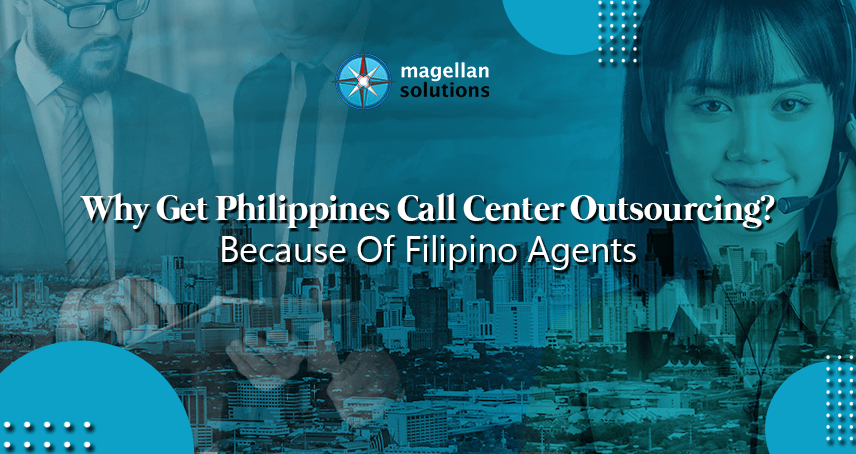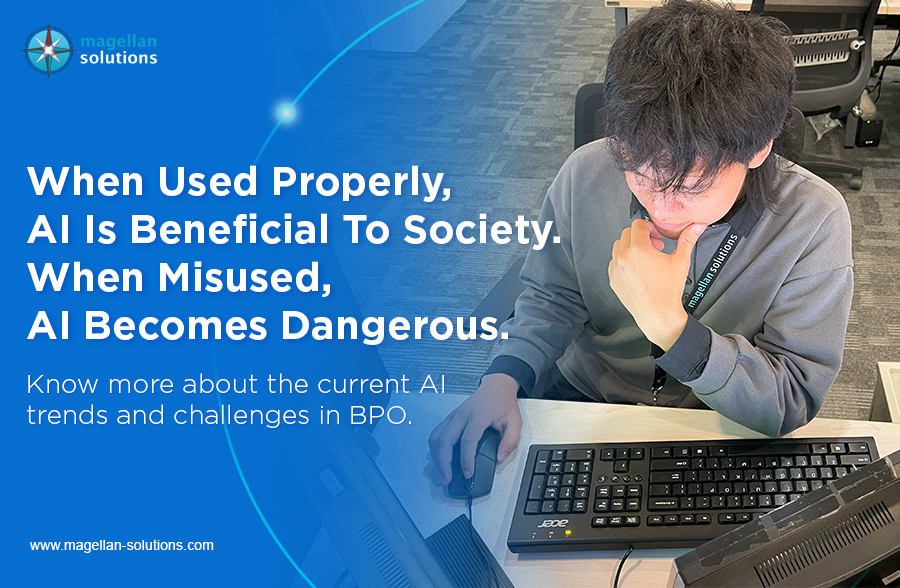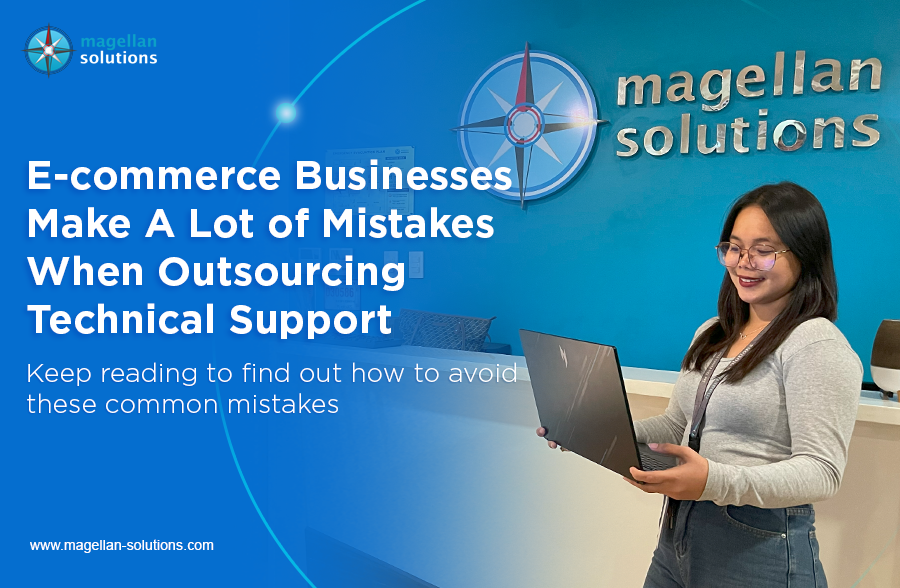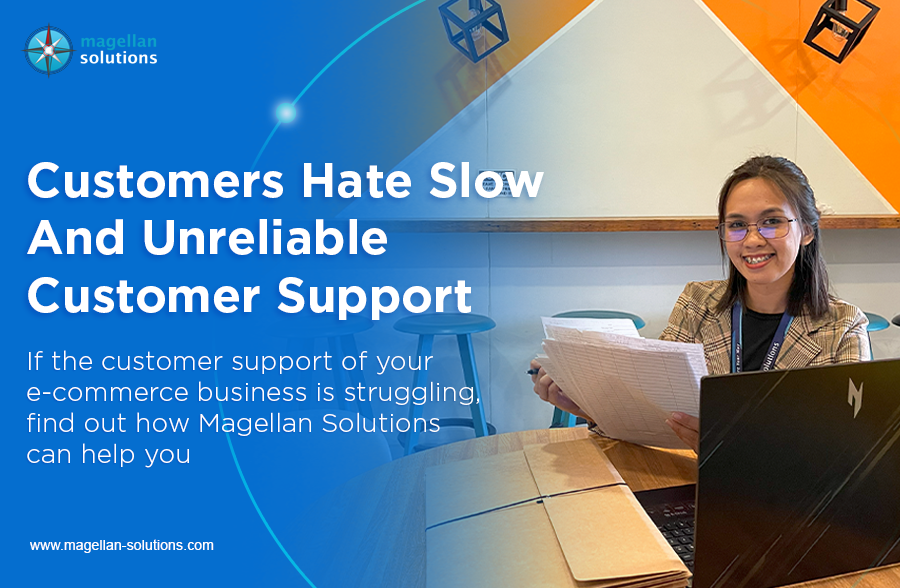Schedule a FREE call with our outsourcing expert now and get a precise quotation that meets your requirements. Don't wait - get started today!
Why are Filipinos considered the best team for call center outsourcing in the Philippines?
The Philippines is a unique country that has a perfect balance of East & West cultures.
While Filipino locals have their distinct Asian identity, their way of life is almost indistinguishable from that of the West.
The success that the Philippines is experiencing in the BPO industry owes so much to its cultural ties with the West. Particularly this applies to the US, thanks to political trading ties, and media. But even with the strong ties, there are still some differences.
An obvious difference is the unequal amount of exchanges both cultures offer. The Philippines are mostly the ones receiving and adapting. One example is that Filipinos consume Western shows, sports, and food.
On the other hand, you rarely see Westerners have ‘palabok’ served as a daily meal. It shows how Filipinos are consumers of Western culture in the present day.
Another difference is independence.
If in Western culture, kids commonly move out of their parent’s home at 18, Filipinos are different. Because of a strong sense of family, there are instances that even after the marrying of the child, they still live with their parents in one house.
Moreover, there are differences in the corporate environment:
| WESTERN | FILIPINO |
|
Time management |
|
| If you have a meeting at 10 AM, you should aim to get there at least a few minutes before. More often than not, you can expect it to start on time. | Learn how to impose the value of timeliness in a call center company in Manila.
There is a tendency for Filipinos to hand in late work. But for clients who are situated in time zones 8-16 hours later, most fast-track works are handed in before the set deadline. The clients are probably still asleep or are just getting out of bed. |
|
(In)directness |
|
| Are you not a fan of your graphic designer’s initial layout? By all means, tell them. They’re not likely to take it personally. | The concept of pride or “saving face” is a big deal in Asian work cultures. It is often associated with Japanese workspaces. However, it can also be applied to call center services in the Philippines setting.
Often, we are not very confrontational and value our reputation. We go out of our way to avoid embarrassment. “Hiya” (embarrassment) or “mahiyain” (shy) is a complicated Filipino value. It puts importance on how others see you. There will be times you need to talk to your Filipino team members on sensitive matters. It’s best to do this in a discreet, courteous, and constructive manner. This will benefit both your team and the company as it allows them to work better. |
|
Business Meetings |
|
| You will probably dive right into the business of things after some brief pleasantries. | “Before we get down to business, let’s talk about your weekend. Did you play golf? How are the kids?”
In some cases, the first business meetings just scratch the surface of the real agenda. The actual deals can be done in more informal settings, maybe over dinner or even a round of golf. |
|
Small talk |
|
| “So, how’s the weather over there?” | “Are you married? Why not?” “Got kids?” “How are you related to *so-and-so*?”
Intrusive? To Filipinos, it is our way to show interest in the other person. Typically, we might also expect you to ask them about the same things. |
|
Honorifics |
|
| Unless you call your boss Mr. or Ms., there aren’t really a lot of uses for honorifics in a Western workplace. It’s even perfectly acceptable in most offices to call your boss by their first name. | Titles are the norm in the Philippines. They show respect to their seniors by using “ma’am,” “sir,” “miss,” “mister,” and even “po” and “opo”. These are all important words used in Filipino culture. It signifies utmost respect. Even when you tell us not to address you with these titles, we will (most often) do so. |
|
Socializing at work |
|
| Apart from the odd lunch or dinner out, you’ve also got the annual staff Christmas party. Plus, there are daily chats at the water cooler or coffee machine. | The camaraderie between the staff is crucial. Aside from the daily interactions and occasional lunch out, we facilitate team-building activities. This often entails the entire team or department going on an out-of-town trip and participating in various games. This is commonly funded by the company too. Company heads and bosses usually join in too. |
|
Dress code |
|
| A button-down shirt, blazer, and a pair of slacks or a sleek skirt often comprise this. | Filipinos typically wear cotton collared shirts, dress pants, or a skirt. Ties are optional and are often done away with too.
This is mainly because o it’s hot and humid in the country most of the time. |
Different team aspects for a contact center Services Philippines
After looking at the differences, you might come to the conclusion that Filipinos are not ideal to work with after all. But hold that thought for a little while longer.
Perhaps taking a deeper dive into our work ethics would change your mind.
Hospitality, warmth, friendliness, and family? These do not stop at our homes. The majority of workplace cultures in the company of call center in the Philippines have these traits embedded. In no time, there will be a sense of belonging and teamwork.
But how do we establish a sense of teamwork, you ask? Aside from Christmas parties and company anniversaries, we also host small events to drive away boredom from call center phone tasks.
Welcoming Party
Who doesn’t love a good party? When there’s a newbie, expect that we are as hospitable as possible. We might invite them for lunch, or engage in a simple conversation. Sometimes in small companies, there would be an assigned person to introduce the colleagues in the department.
Furthermore, there is possible insider info about the existing workplace culture. It could come in the form of unwritten or unspoken dos and don’ts, or even who’s who at the office.
Inquisition
“Where do you live? What’s your age? Are you still single or already married? What shall we call you?”
No, it is not a dimly lit room with people who interrogate.
However, you could liken the mood to that kind of situation. Because there is a newbie in the office, expect that Filipinos will ask questions to get to know them. One of the core Filipino values is inquisitive and friendly. So in order to acclimate, there is always a friendly interrogation.
The Feast
If there’s one surefire way to charm the Filipino workforce in general, it’s through food.
Expect that potluck to be a common occurrence at the office. At every meeting, expect that food will be included.
Feasts do not only happen during meetings. Part of Filipino workplace culture is to be generous with what you have. Even if it’s just a simple lunch, expect that everyone in the room will share it.
Team Building
Filipinos build their corporate culture based on personal relationships. To be in harmony with colleagues, everyone must be friends with them.
We do this by joining them for a group lunch or a snack. It is also usual to volunteer and help with tasks. Through this, we strike up a conversation. Maybe even crack a joke or two.
The Baptism
You know you are already part of the team when you get a nickname. Mind you, it’s not the usual shortened form of your name. This signifies the team welcomes you to the family.
You could be the ‘bunso’ (the youngest), ate (older sister), Kuya (older brother), tita (aunt), tito (uncle). In some cases, the lolo (grandfather) or the lola (grandmother).
A strong bond runs through the Filipino workplace due to the long hours that they spend together. It’s common to hear a colleague calling another “Nanay” (mom) or “Tatay”(dad), as well as eating lunch together.
Nickname giving similar to this is common in Filipino workplaces because, among the Philippine cultural values, the family is important.
Exchange Gifts
Aside from the usual Christmas gifts, Filipinos love receiving pasalubong (trinkets). When a colleague goes on vacation, expect friends and colleagues to ask for small tokens from the vacationer. Called pakikisama.
Pakikisama is roughly translated to English as “camaraderie.” But for Filipinos, it means more than just that. We go out of our way to help.
Adding value to any relationship is a true hallmark of Filipino pakikisama.
The Body Building
We do not slack at work. We wouldn’t hesitate to stay behind just to finish the task or to achieve the team goal. As a reward for their hard work, just expect your colleagues to reward themselves with lunch or dinner to celebrate.
Furthermore, Filipinos are hospitable and very service-oriented. There is an innate desire to please clients or customers. You could use this to your advantage by providing feedback as much as you can. Spell out your expectations at crucial stages of the project.
Loyalty
Filipinos are loyal. If one becomes part of the family at work, expect them to help even outside the office. If one becomes part of a company that cares for its employees, you may notice that some call center Philippines employees have worked for the company for 10 years or more.
In corporate culture, loyalty is valued.
Advantages of outsourcing to Contact Center Solutions Philippines
Magellan Solutions knows work culture is not enough to fully get your interest to build a partnership with call center companies in Metro Manila. We list down what more you can expect once you hire Filipino call center agents:
It’s less expensive
There are significant costs involved in running an in-house call center. Remember, you’ll handle expenses like:
- Set-up costs.
- Equipment costs.
- Overheads like the internet and electricity.
- Training expenses.
Plus, when you train and manage new recruits, you’ll have little time to do anything else. Additionally, with the d effects of COVID-19, businesses are in no position to increase their operational costs.
On the other hand, salaries are up to the economy of the country.
In 2018, the average salary of BPO employees in the Philippines was PHP 375,000/year. That’s around $7,395 per year. Compare that to the United States national average of approximately $30,000 per year for a call center agent, and you’re looking at tons of savings.
Sounds too good to be true?
The only reason salaries are like this in the Philippines is because of the cost of living. Even with comparatively low salaries, you’ll still be paying Filipino agents the expected salary for such positions.
24/7 customer care
When you run an in-house call center, you’re limited to certain time zones. But if you outsource, you could get a separate set of agents from call centers in Manila, Philippines, to take over the night shift.
Since they’re located in Asia, you don’t need to employ a separate set of in-house staff for your night shift.
Additionally, as there are so many call center agents in the Philippines, they can take over your entire call center workload.
In the Philippines, outbound call center agents speak fluent English
The Philippines is one of the largest English-speaking nations in the world. English, along with Tagalog, is the official language in the Philippines and is also their primary medium of education.
Plus, the Philippines have a literacy rate of 98.18%. There are graduates entering the labor force each year.
The government also offers programs through the TESDA (Technical Education and Skills Development Authority) that focus on training graduates to take over BPO sector jobs.
The Filipino government offers incentives for foreign investors
Since we are a developing country, we’re eager for foreign companies to invest in our economy.
The government implemented many tax benefits for foreigners looking to invest in the country. The Special Economic Zones Act is something that focuses heavily on bringing investments in.
Here are some of the benefits it offers investors:
- Four-year exemption of corporate income tax.
- Duty-free imports for equipment, supplies, and raw materials.
- Local tax exemptions and permits.
- Permanent resident facilities for foreign investors and immediate family.
- In addition to these tax exemptions, if you register your business with the Philippine Economic Zone Authority (PEZA), you’ll get even more benefits and incentives like exemption from expanded withholding tax.
Strong data security regulations
The Philippines government brought the Data Privacy Act into effect to safeguard the outsourcing industry and its foreign investors.
Anyone found guilty of violating privacy regulations can be jailed for up to 6 years and fined an amount of $20,000 to $100,000. That’s around 2 to 13 times the average annual salary of a call center agent!
With such strict laws and heavy penalties in place, your data would remain in safe contact center Philippines agents.
Better result call center Philippines and Magellan Solutions
Since the Philippines is renowned as a top BPO destination, outsourcing your call center services to the Philippines is a smart business decision.
Want to learn about the call center company in the Philippines?
Leave us your information below, and we’ll get back to you ASAP!
















